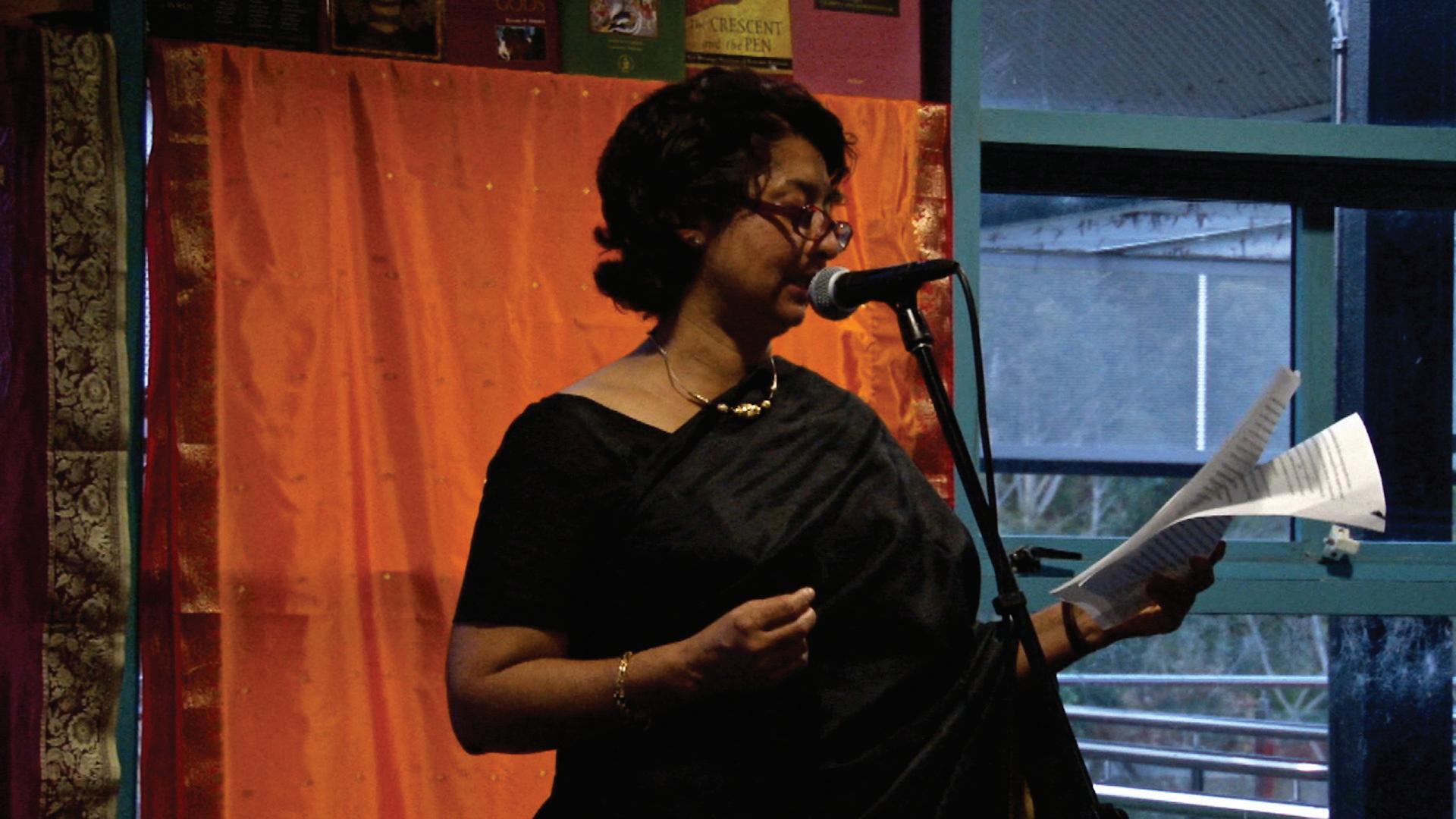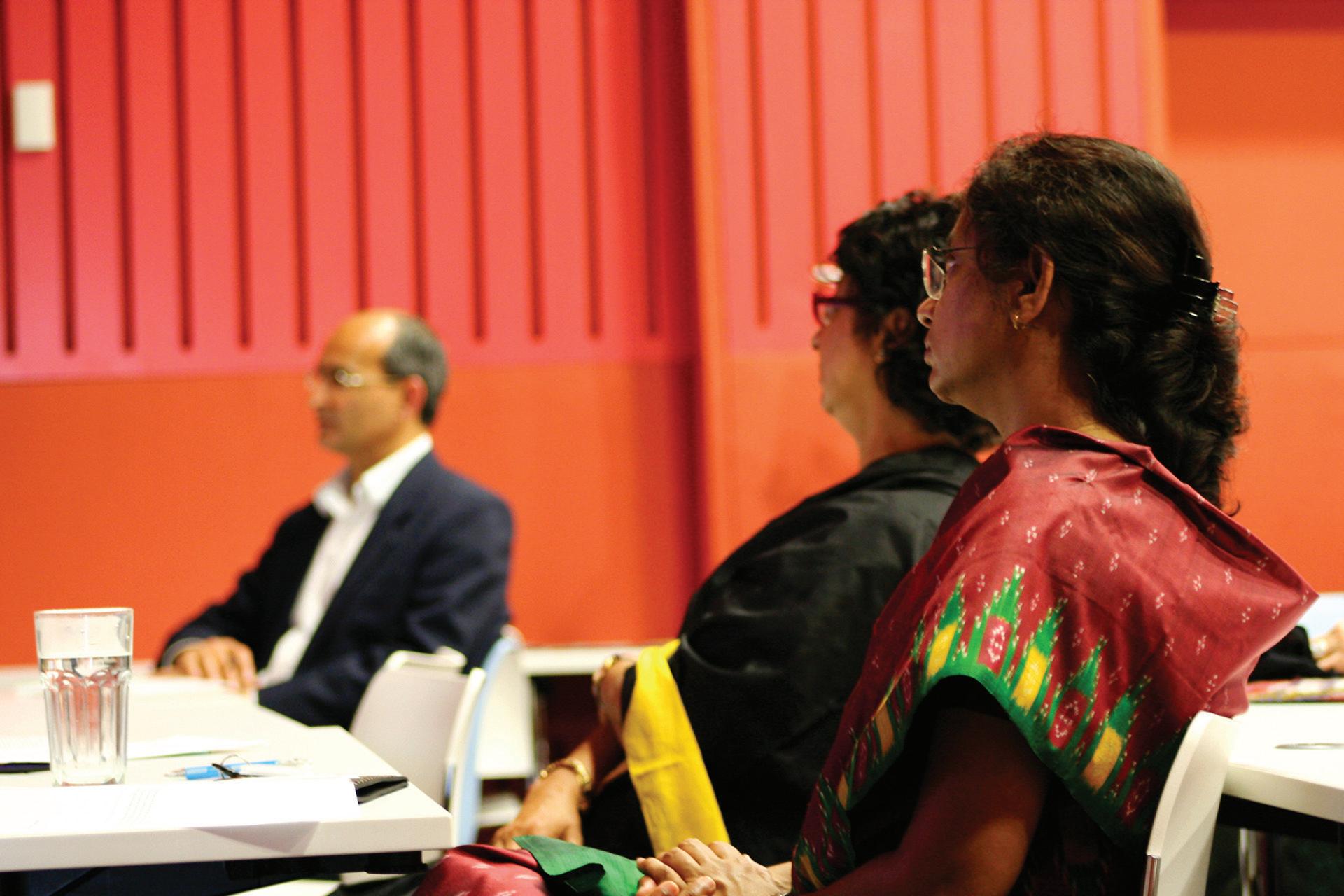
7 minute read
IRC a step towards stronger
from 2010-12 Melbourne
by Indian Link
The official inauguration of the India Research Centre at Macquarie University is a significant step towards a better understanding of the country, writes MONICA
November 16 marked an important date for the advancement and development of IndoAustralian relations within academic circles here in Sydney, with larger implications for the growing Indian diaspora in Australia. A corner of the Macquarie University campus in North Ryde was transformed into a host venue for the inauguration of the newest addition to university research culture: the India Research Centre (IRC). While designed to be both a catalyst and a showcase for all styles of research on India, IRC also intends to direct part of its focus to the performing arts, as well as community outreach and development. Although scholastic in nature, the intention of the centre is to have farreaching impact, well beyond the walls of the academy.
Dr. Kalpana Ram, Director of the Centre, described its activities during the launch as a “triveni, in which three streams come together in one, as in the braiding of a plait, or as in the famous triveni sangam of three rivers, a site of great power”. Correspondingly, the three areas of focus within the centre are: cultural, political and social science research on India and Indian immigrant diasporas; engagement with Indian performance culture both in written and practice based forms; and collaboration with the Indian community on issues of community concern, as well as through the arts. Precisely how the centre will achieve these goals remains to be seen, but if the events surrounding the launch week were any indicator, there is a lot to look forward to in the future.
Dalidowicz
of November 17 at Macquarie University and was marked by evocative opening speeches by Consul General of India Amit Dasgupta, Executive Dean at Macquarie John Simons and Director of the Centre, Dr. Kalpana Ram.
Dr. John Simons expressed both his gratitude and support for the centre, sharing his own personal connections with India. Simons’ grandfather served alongside members of the Indian army, and as a child, Simons grew up with stories of the loyalty and bravery of the Indian people. Sympathetic to the need for the IRC, Simons endorsed the Centre and offered Macquarie’s ongoing support. “There is still much to be done to deepen research on India in Australia. At the Centre, we aim to build on the work we’re already undertaking and create a research community of work on India, which will strengthen the broader research community of South Asia scholars. We’ll develop further research links with India and other countries, which will lead to closer ties and ultimately a greater understanding,” Simons said.

Consul General Amit Dasgupta spoke with similar passion about the idea for the Centre, its subsequent development, and the possibilities ahead. Dasgupta described with great sensitivity, the incredible opportunity that had come out of the recent tragic events, the attacks on Indian students. He relations at an all-time low, at present we are in a position to work to improve and truly develop such relations. The IRC is one of those possibilities. Dasgupta’s initiatives with Macquarie University began earlier this year with the Consul General’s donation of 100 books to the University.
The launch of the centre also celebrated the endowment of the new Tagore Chair in Art and Culture by the Government of India, presented by Dasgupta. Sponsored largely by the Indian government but also through the contributions of Macquarie University, this Chair will bring a visiting professor to Macquarie each year to continue and extend the work of the Centre through their own research on India-specific topics. The chair, in honour of Nobel Laureate Rabindranath Tagore, seems quite appropriately suited for the IRC with its plans to advance an agenda including emphasis in the arts. A sculpted bust of Tagore will be donated to the Centre in honour of the chair. Other noted possibilities include the development of courses in modern Indian languages to be offered at Macquarie.
The evening also featured musical performances by IRC members, Dr. Adrian McNeil on sarod (Macquarie professor), Sandy Evans on carnatic-saxophone (Australian jazz musician of the year and IRC graduate student), as well as Bobby Singh (2010 ARIA winner). The IRC plans to continue hosting performance events throughout the year.
November 16 – 17, Macquarie hosted an academic conference displaying the diverse research interests of centre members and graduate students. Members presented papers on their recent work relating to India, covering topics ranging from the negotiations of Hindustani musicians in Kolkata, to experiences of Indian migrants in Australia on temporary work visas, to rhetoric in Tamil media.

In addition, the IRC hosted two guest speakers, Dr. Partha Mukherji from the Institute of Social Sciences, Delhi who discussing the multi-ethnic nation-state of India, and keynote speaker, Dr. Ranjani Mazumdar from Jawaharlal Nehru University, Delhi who discussed representation of terrorism in Mumbai’s recent cinema.
In congruence with the three-stranded approach of the centre, the IRC also hosted a community forum, a dialogue on issues facing Indian students in Australia with participants both from within the academy and outside, including community workers, NSW government representatives and students. The conference also included a number of performance-related events, including a panel specifically highlighting the IRC’s research on music and poetry, a literary reading accompanied by the sarod, a special exhibition of photographs of the freedom movement in India, and an exhibition of the University’s collection of Indian instruments.
The week of activities concluded with
UTS in Sydney. Over both days a number of scholars presented on current issues in Indian cinema, from notions of Bollywood and its position on the global stage, to pedagogies surrounding the teaching of Indian films.
The people behind IRC
So who are the individuals behind the Centre and what kind of work can we expect to see emerging from the IRC? The India Research Centre was conceptualized and designed to build on research on India that is already occurring within the Faculty of Arts at Macquarie University. As the conference demonstrated, the Centre will bring together researchers working in a variety of disciplines in the Faculty of Arts, such as Media, Cultural Studies, Sociology, and Music. The IRC will be officially housed within the Department of Anthropology at Macquarie University, under the directorship of Dr. Kalpana Ram, and is a joint initiative between Macquarie University and the Indian government.
Dr. Ram is herself an anthropologist at Macquarie and has been one of the driving forces behind the opening of the Centre. Ram notes, “During my period as inaugural Director of the Centre I will be developing a number of commitments that emerge out of my research and history: research on themes to do with social justice, connections both through research and practical involvement with the Indian diaspora in Australia, and an emphasis on performance and performance cultures.” Her own research ranges from investigates connections between ritual action and music in North India. He is recognized as a leading scholar of musical practice in the Himalayas, having undertaken extensive research in the state of Uttarakhand. Dr. Adrian McNeil, also an ethnomusicologist, has conducted extensive research on the cultural history of the sarod and is recognised as a leading authority on its history. He is also an established performer of the sarod, having undergone intensive training in the guru-shisya parampara, and performs regularly in both India and Australia.
Dr. Ian Bedford, also from Anthropology, has a long history of research in both India and Paksistan. His research includes such topics as Indian and Pakistani muslims, Urdu literature, south Indian classical music. He is also a translator of Urdu verse and a novelist, writing fiction works set in India and within its diaspora.
From Cultural Studies, Dr. Goldie Osuri’s work addresses nationalism and transnationalism in relation to race, ethnicity, multiculturalism, terrorism, and religion in the Indian context. Dr. Maya Ranganathan, from the department of International Communication, focuses on Indian media and the identities it constructs and conveys in the age of globalisation. She is also exploring foreign policy since 2001, and AustraliaIndia relations from student issues in Australia to the Commonwealth Games in India.
And to round out the Centre’s membership, from sociology, Dr Selvaraj Velayutham has researched on Indian migration, diaspora and transnationalism, and Tamil culture. A recent project of Dr. Velayutham examined the temporary skilled migration of South Indians to Australia.
The eclectic range of scholarship and research interests highlights the diversity of the centre and its potential for a wide-ranging scale of future activities. With this diverse and accomplished group of scholars at the reins of the new IRC, we can expect exciting things to come.
In addition, the IRC is host to a growing body of graduate students, working alongside many of the centre members. The IRC currently has eight affiliated graduate students from disciplines such as music, sociology and anthropology. The higher degree research students similarly represent a broad spectrum of research, including such topics as reproductive technologies and commercial surrogacy in India, patterns of Indian labour migration and Hindu religious practice in Sydney. Amongst this group are also two practice-based researchers, one a carnatic-jazz musician and another, a kathak extended to December 2010. The scholarship is a great asset to the local community as it encourages much-needed research in Sydney’s Indian communities; the IRC encourages all potential applicants to apply. * * *
The week’s activities and the creation of the new India Research Centre mark an important turning point in India’s role in the academic setting. The IRC at Macquarie has demonstrated their ongoing commitment to the improvement of IndoAustralian relations, the fostering of further collaborations and the creation of a research community of work on India. The hope is that such academic pursuits will contribute to a deeper understanding of India and the Indian diaspora in Australia.
The overall feeling at the IRC launch was certainly just that, one of hope and endless possibilities. Dasgupta’s inaugural speech ended with a moral tale of Guru Nanak’s, within which he described the scattering of all the ‘good people’ of one village far and wide, so that they could go out into the world with their knowledge and goodness, to disperse and to share what they know. One gets the sense that those gathered would do just that.








